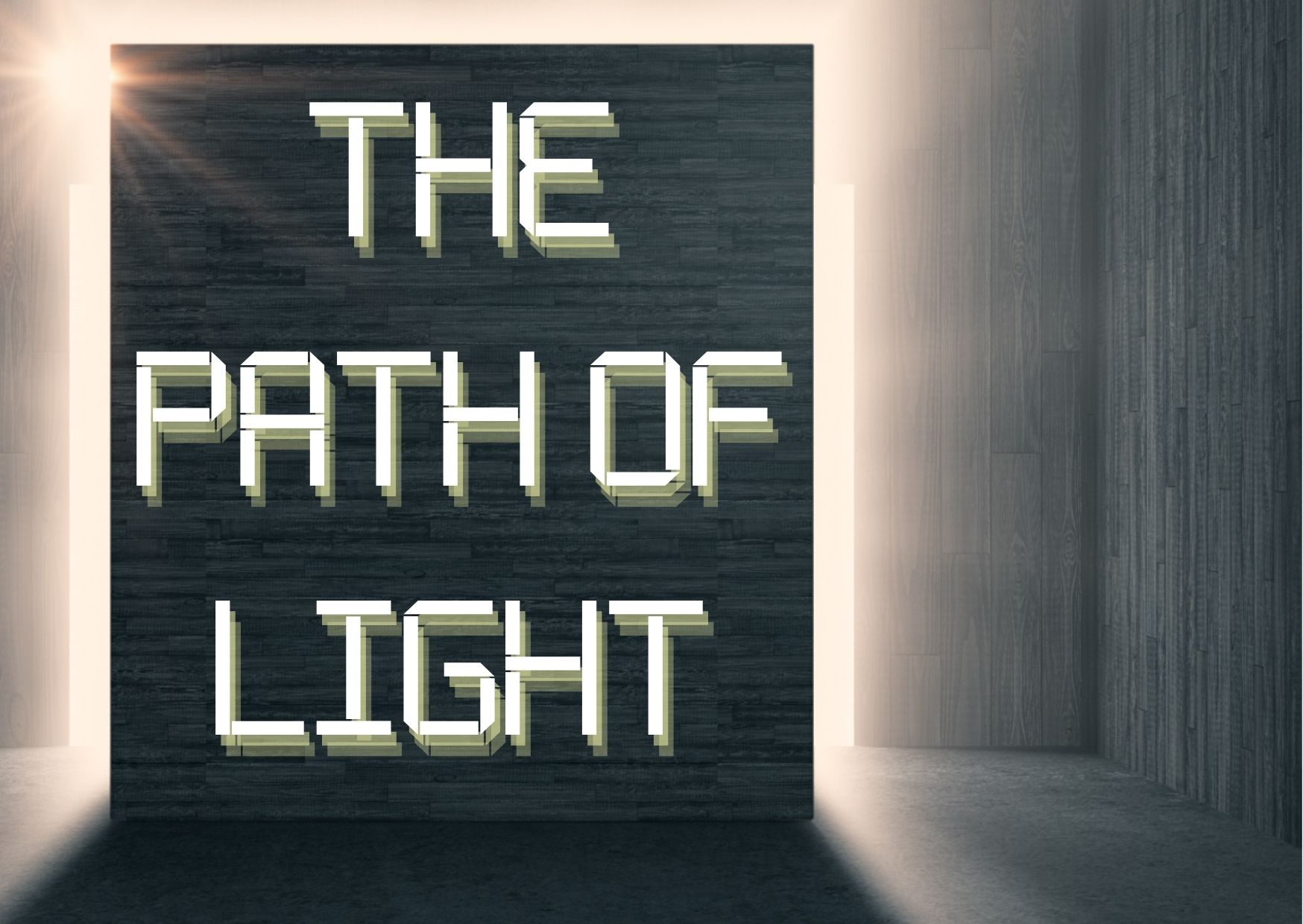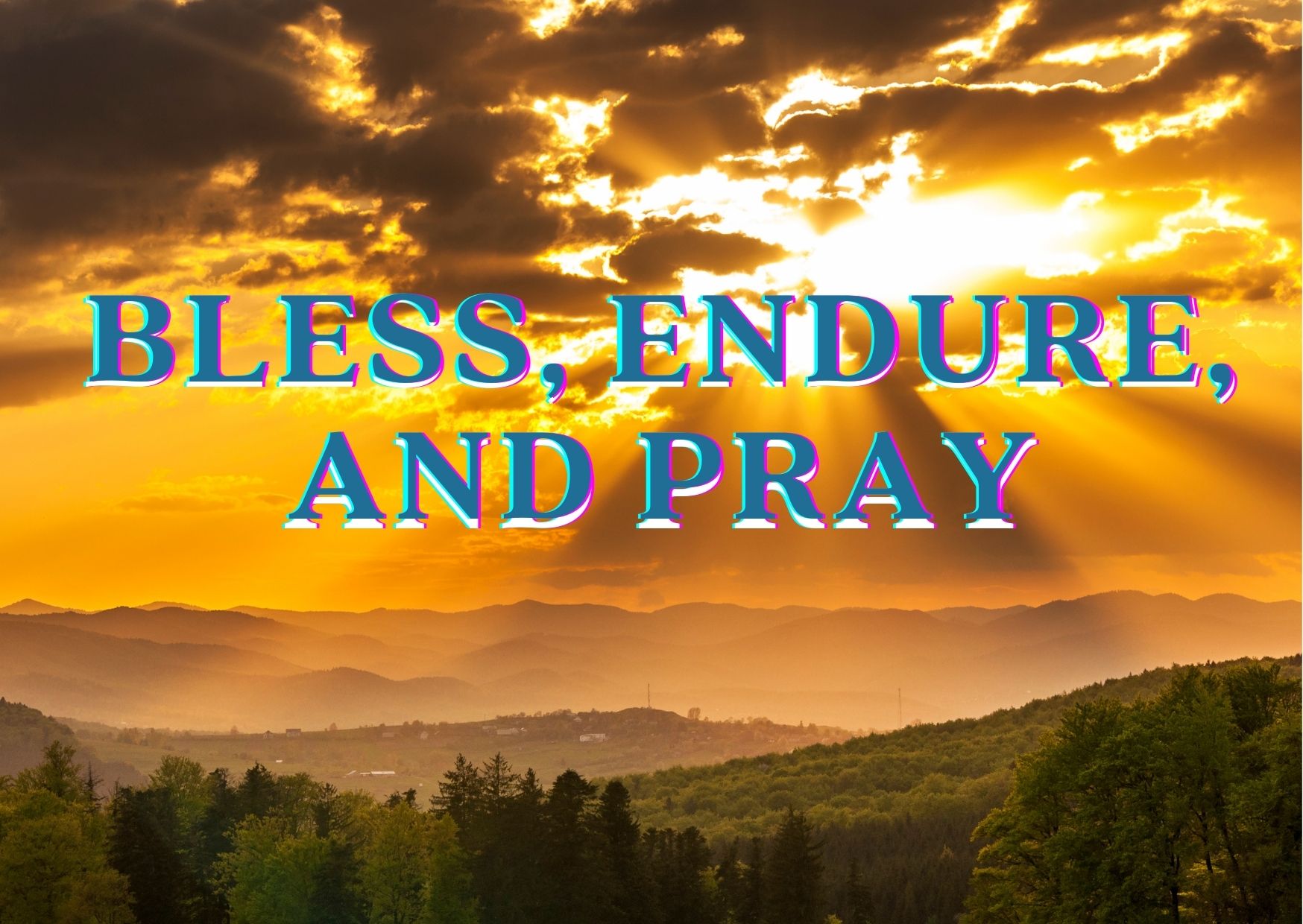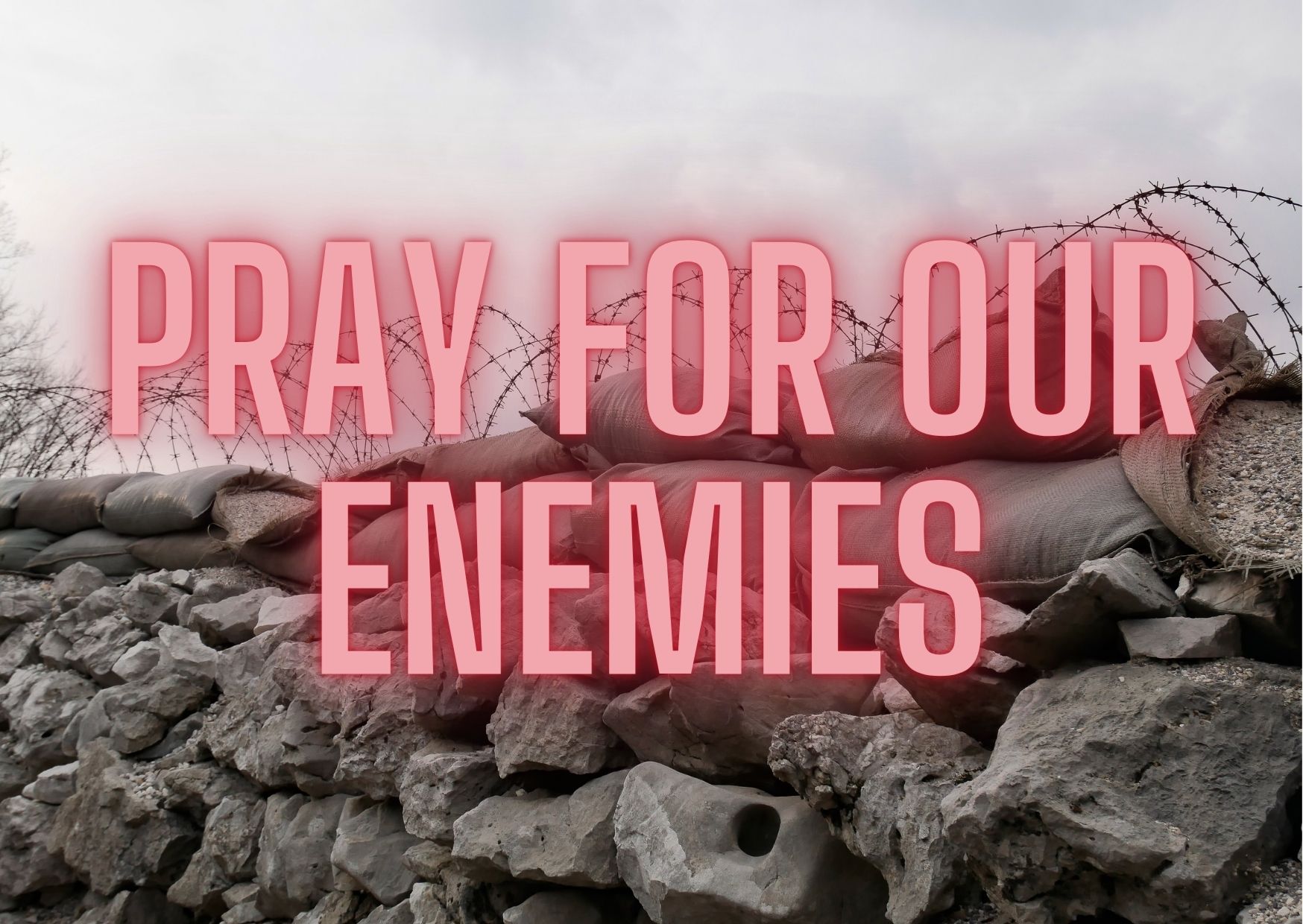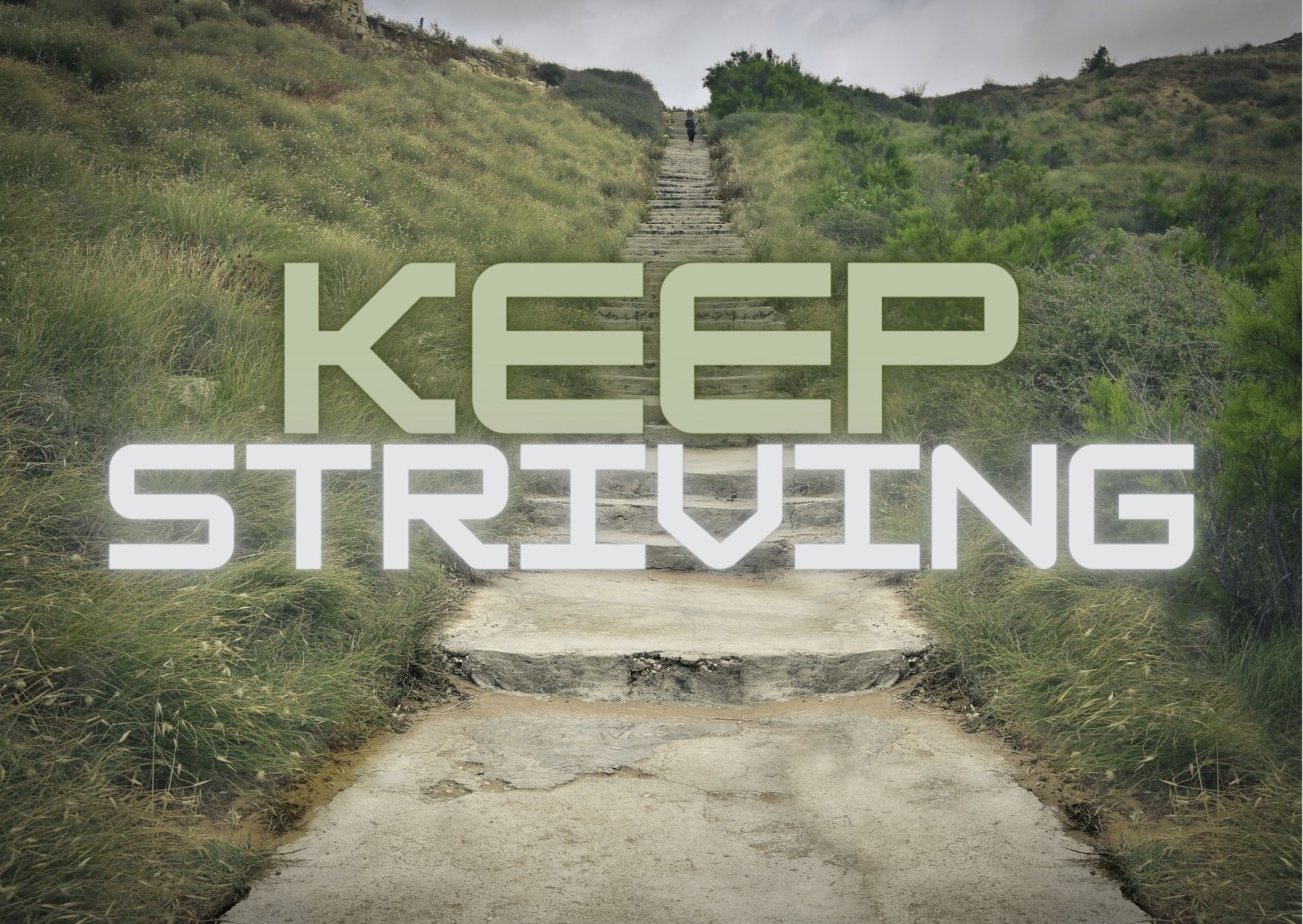What Will You Do For Jesus

What Will You Do for Jesus?
We get it; working around Sundays can be a challenging prospect. Often it seems as though the ritualistic nature of Sundays gets in the way. Amanda and I began celebrating Father/Mother’s Day a day earlier than everyone else this year. The reasoning is simple, our Sunday mornings are filled with other pertinent matters. And so, my wife, in her amazing and brilliant wisdom, decided that it would be best (read less chaotic) if we simply observed these special days a day earlier. The funny thing is it took us eight years of ministry to figure this out, although we’ve only had children for four of those years. Regardless of how long it took, this switch was transformative for our family. We were able to celebrate each other and enjoy the morning at a relaxed pace. Why were we trying to cram everything into one day? Why did we feel we needed to mash everything into a Sunday morning?
Some of that is trying to keep up with social and cultural norms. We play along with what society says and don’t consider why we are doing these things. Some of it has to do with our luxurious living, where we dedicate a whole day to a parent or person. Gone are the days of a coffee mug and tie. Now we feel the need to lavishly exaggerate our celebration. I believe it is good to recognize the people in our lives, and it is positive reinforcement for all we do for each other. The problem is, why do we feel the necessity to pack it on top of Sundays? A day where we should be reflecting on Jesus.
Mark 16:2- “Very early on the first day of the week, just after sunrise, they were on their way to the tomb.”
Acts 20:7- “On the first day of the week we came together to break bread. Paul spoke to the people and, because he intended to leave the next day, kept on talking until midnight.”
1 Corinthians 16:2- “On the first day of every week, each one of you should set aside a sum of money in keeping with your income, saving it up, so that when I come no collections will have to be made.”
From these passages, we can see the forethought that should go into our weekly meetings. We will go out of our way to schedule and prioritize every moment of our lives, but we will seldom put that same effort into making sure we are meeting together on a regular basis. If I assert that Jesus is the most essential piece of my life, can I reorganize it to reflect this reality? What else could I switch around to place more emphasis on the body of Christ?
Historically the Jewish people were well accustomed to making their rhythm of life reflect their spiritual reality. I am not suggesting that we become dogmatic or rigid about these concepts; I am merely suggesting that we think of our lives with this question: What will you do for Jesus? Switching up our special day observances was a simple and beneficial way for my family to say, Jesus comes first.
Memories

Blog. 6.13.2022
Memories
Attending someone’s memorial service is one of the more underrated experiences that most people avoid or dismiss. Being in this profession for the last nine years, I have had ample opportunity to listen to an individual’s farewell tribute, even when I didn’t know them personally. It is fascinating to hear about someone’s life and legacy. I get to formulate my thoughts and opinions about them from the perspective of their entire life. And typically, at these celebrations of life, the only things that are shared are good memories, so I get to know the best about an individual (this helps with the concept of grace). We often see people for a brief snapshot of their life, and these moments only give us insights into who they are and the lives they lived. But at a memorial service, I can hear their impact and the memories shared across the totality of their existence. Whenever I leave a service like this, I feel the urge to make the most of my time on earth. I think of the memories I will leave for others to cherish, and I want to make sure that the memories that people have of me are good ones. And when people think of me, it will be a fond memory they recall.
Memories are an interesting phenomenon. They are tied back to the person that we once knew. They link us to each other in ways that overcome space and time. We can instantly recall someone in our life’s history long after our interactions with them are gone. It is a humbling and encouraging thought to know the impact we can have on each other. Tragically our intimate recollections are also fleeting. It will eventually disappear no matter how much we want to hold onto a memory. It is a sad truth that there will come a time when no one will remember us. The writer of Ecclesiastes put it like this: “No one remembers the former generations, and even those yet to come will not be remembered by those who follow them” (Ecclesiastes 1:11). Think about it from your anecdotal perspective; what do you really know about your great-great-great-grandfather or grandmother? Do you even know their names? As depressing as this thought can be, I want to leave you with a hopeful message; no matter who forgets about you on earth or how temporal everything appears, there is one who knows you and will never forget you.
Luke 12:6-7
“What is the price of five sparrows–two copper coins? Yet God does not forget a single one of them. 7 And the very hairs on your head are all numbered. So don’t be afraid; you are more valuable to God than a whole flock of sparrows.”
Although there will come a time when no one remembers you, God will always know you. Jesus’ words in this passage are reassuring and comforting. We are so valuable to God; He even numbers the hair on our heads. The details that God knows about us are truly immeasurable. And even when others forget about me, God will know these intimate details. And for those who participate in the new covenant, there is an additional benefit.
Hebrews 8:10-12
“For this is the covenant that I will make with the house of Israel after those days, declares the Lord: I will put my laws into their minds, and write them on their hearts, and I will be their God, and they shall be my people. 11 And they shall not teach, each one his neighbor and each one his brother, saying, ‘Know the Lord,’ for they shall all know me, from the least of them to the greatest. 12 For I will be merciful toward their iniquities, and I will remember their sins no more.”
God will remove all our sins and remember them no more. Like these memorial services, He will recall only the best parts of us and bring them to memory. Our earthly memories will fade and come to an end, but to the Living God, we will always be remembered as those made blameless in the blood of the Son. That is why the best actions we can take in this life are not to live for the praise and accolades of men but to secure our treasure in heaven, where even memories will not be extinguished by the ravages of time.
Starting Today

Blog 6.6.2022
Starting Today
Record numbers of those professing to be followers of Christ are leaving their churches. Across the board, young people are turning their backs on formal religion and its ritual observances. The Barna Research Group noted an alarming statistic that “nearly two out of every three young Christians (64%) disconnect either permanently or for an extended period of time from church life after age 15.” Reading a statistic like this will always break my heart. My heart aches for those that leave and never come back; for them to approach the love of Christ and reject it overwhelms me with sorrow. Their website (Barna Group – Knowledge to navigate a changing world) has a lot of great resources; they have done a lot of surveys and research on how to maintain this disappearing demographic. I highly recommend looking into their assortment of studies to gain perspective.
However, I believe two things can happen when we look at research studies and surveys like this. The first is that we begin to feel hopeless, desperate, and perhaps that all is lost. I encourage you to not fall into this trap of thinking. We (Christians) are built upon hope; even when all seems to be lost, we have a God who can do the impossible. “Jesus looked at them and said, “With man this is impossible, but with God, all things are possible” (Matthew 19:26).
The second is that we tend to point fingers when we read this kind of information. We blame every generation for its failings. We condemn the one generation for their lack of love. We blame another for their lack of conviction. Yet another is blamed for its soft stance on biblical issues. We point fingers and blame everyone for their contributions to this problem. Jesus has a far different approach to looking at these issues; they are found in Matthew 7:3-5, the discourse of the speck and log. Jesus plainly teaches that when there are glaring weaknesses in our spiritual walk, we first address our shortcomings and then help out those around us. We all have spiritual struggles; to deny this is to call God a liar, “If we claim we have not sinned, we make [God] out to be a liar, and his word is not in us” (1 John 1:10). The proper adjustment is to take stock of your own walk and fix the areas you are lacking, and if you are lacking, God will bring you to maturity. If you don’t know if you have a speck in your eye, ask someone; perhaps they can see it well enough to help you pinpoint the culprit.
In their book “Faith for Exiles” David Kinnaman and Mark Matlock present a strong strategy for exodus-proofing a church. It is by maintaining a multigenerational approach to all aspects of life. This means breaking out of a “Sunday morning mentality” or having conversations with people in a different age category. It might even mean leaving your specific region of the building to talk to someone across the aisle. Here are some questions to consider: when was the last time you spoke to someone that was not your “”normal”” group at church? When did you seek out someone in a different age group than you? These little questions are the specks in our eyes; let’s not let them turn into logs.
One final thought on issues like this. It is easier to “”Monday morning quarterback”” or second-guess what we should have done in the past. It is harder to look forward, hold ourselves accountable and make the necessary adjustments. It is like putting our hand on to plow and looking back; we can’t live like that. Starting today, we must keep our eyes firmly fixed on our intended direction and start moving the way we should be heading.
Luke 9:57-62
“As they were walking along the road, a man said to him, “”I will follow you wherever you go.”” 58 Jesus replied, “”Foxes have dens and birds have nests, but the Son of Man has no place to lay his head.”” 59 He said to another man, “”Follow me.”” But he replied, “”Lord, first let me go and bury my father.”” 60 Jesus said to him, “”Let the dead bury their own dead, but you go and proclaim the kingdom of God.”” 61 Still another said, “”I will follow you, Lord; but first let me go back and say goodbye to my family.”” 62 Jesus replied, “”No one who puts a hand to the plow and looks back is fit for service in the kingdom of God.”
The Path Of Light

Blog 5.30.2022
The Path of Light
My boys love playing in the dark; I think all children do. It is mysterious, disorienting, and allows for a little more mischief. When the lights go off, there are shrieks of excitement. Then, they begin bumping into each other and flailing around in the dim light. It is fun for a time, but eventually, there is a minor injury, and the lights have to come on to solve the issue. Because of that reason, I am not a proponent of playing in the dark. The lighthearted play gets out of hand too quickly, and I must figure out what happened in the darkness, which is impossible because I don’t have night vision and can never be sure what transpired. Typically, I have to tell the boys, ““This is what happens when you play in the dark, it might be more fun, but someone will probably get hurt.””
I can resolve some of the injuries by introducing a tiny battery-powered flashlight. It is amazing how this small device allows for their creative juices to unfold and gives them the ability to avoid collisions in the darkness. I am also impressed by how a flashlight enables them to control their environment. No matter how dark their room might be, that tiny light gives them power over their surroundings. They are no longer hindered by their lack of sight; they can navigate in a way that is transformative.
The world we live in is dark. There is no denying that it is also apparent that this was not how God intended it when we spoke that everything was “very good at the end of His creative actions in the first narrative in Genesis. It is also no surprise that many people enjoy living in darkness. It is mysterious, disorienting, and allows for a little more mischief… for a time. The challenging part is so many people live in this darkness that they don’t even know how to find a light. If they could find the light, they would not know how to switch it on.
This is where God has been gracious to us. In the narrative of Nehemiah, after some Jews returned to Jerusalem after their exile, Levites stood recounting their history of God’s people. They retold the pattern of God working as the Israelites wandered through the desert.
Nehemiah 9:19
“Because of your [God’s] great compassion you did not abandon them in the wilderness. By day the pillar of cloud did not fail to guide them on their path, nor the pillar of fire by night to shine on the way they were to take.”
God does not leave us to stumble around in the darkness. He does not resolve to let us trip over and harm each other. Instead, God gives direction and leadership to a wandering and disoriented group of people. In His great compassion, He provides a light that shines in the darkness.
John 8:12
“When Jesus spoke again to the people, he said, ““I am the light of the world. Whoever follows me will never walk in darkness, but will have the light of life.””
It is no doubt that the life of Jesus is the path we are to take. We are to live like Him because he is the light by which we walk. In a disorienting and confused world, we need to grab hold of the Light. If we do, we might be surprised how much control and awareness the Light will provide us. Tragically, what we witness now is people attempting to fight darkness with more darkness. This can never be the solution. The only way to be surrounded by darkness is to be changed into a demonstration of the Light.
2 Corinthians 4:6-12
“For God, who said, ““Let light shine out of darkness,”” made his light shine in our hearts to give us the light of the knowledge of God’s glory displayed in the face of Christ. 7 But we have this treasure in jars of clay to show that this all-surpassing power is from God and not from us. 8 We are hard-pressed on every side, but not crushed; perplexed, but not in despair; 9 persecuted, but not abandoned; struck down, but not destroyed. 10 We always carry around in our body the death of Jesus, so that the life of Jesus may also be revealed in our body. 11 For we who are alive are always being given over to death for Jesus’ sake, so that his life may also be revealed in our mortal body. 12 So then, death is at work in us, but life is at work in you.”
Take a moment to reflect on these words of Paul. The situation is not grand for those that hold the light. They will be hard-pressed, perplexed, persecuted, and struck down. However, the light will still be shining within them. I love how Paul writes this. We hold our lights in jars of clay. In this scenario, the light can only shine out of the mouth of the jar, a very limited opening. That is until the jar is crushed. It is at that moment the light can be visible for all to see. It is not until we live in a self-sacrificing way that the Light will be apparent to all. It is at this moment that “his life may be also revealed in our mortal body.””
Eventually, the darkness will lose its appeal. Maybe not for everyone, but for those who are seeking, a light will shine out of the darkness like a beacon of hope. And when people come searching, we should be ready to show them what true Light and Life really looks like. The path of Jesus, the path of Light.
Overlook

Overlook
I think we are all a little angrier lately. It is hard to not look around the world and see or even experience the escalation of hot-headed temperaments. Here are some statistics from the last 10 years. In a 2019 survey by AAA, nearly 80 percent of drivers in a 2019 survey had shown significant aggression while driving at least once in the previous 30 days, according to a similar AAA survey. What used to be considered common courtesy on the roads has become a Mad Max free-for-all. Daily videos showcase drivers’ absurdity and reckless natures and habits on every social media site. I’m sure you have felt the rise in anger and aggression in your daily interactions, whether driving or shopping at a grocery store. It is frightening to think about what will happen to us in five years.
Anger is not a new issue for humanity. It is something that God has given to us for us to notice injustice and deal with it appropriately. “Be angry and do not sin; do not let the sun go down on your anger” (Ephesians 4:26). As Paul writes to the church in Ephesus, he doesn’t give them the command to never be angry. God was angry with Israel many times (Num 32:13), and Jesus’s anger was justified in the temple (Matthew 21:12). However, anger in these circumstances was righteous and justified. They both also produced actions that corrected the situation without sinning.
However, today I want to look at two truths displayed in the book of Proverbs. First, it should caution us on how we interact with the world and our course of action with those we encounter.
Proverbs 29:22 “An angry person stirs up conflict, and a hot-tempered person commits many sins.”
Detailed in this verse is something we are all aware of, that an angry person is looking for a fight. They are prone to get into a fight, but they enjoy stirring up the conflict. This is not the kind of anger that has subsided with the setting of the sun. This is an anger that is constantly brewing under the surface. It is not producing any kind of solution, just rage, and malice toward others. This is what I believe we are seeing on the faces and hearts of those around us. This hot temper is looking for trouble that is the cause and root of sin in these people’s lives. We may often think that our anger is not hurting anyone, but it is simmering below the surface, and it is waiting to be unleashed if not confronted or dealt with properly.
Proverbs also gives us good insight on this topic.
Proverbs 19:11 “Good sense makes one slow to anger, and it is his glory to overlook an offense.”
We have to be willing to either let our anger go or find a beneficial way to handle it without turning to a sinful state like hatred or malice. The solution to letting it go is to have “good sense” or understanding. This helps us separate actual injustices and minor inconveniences. It is to our benefit if we choose to overlook these offenses. It is easy to want to retaliate or lash out in frustration. However, the better solution is to address it with understanding. Someone cutting me off in traffic is a minor inconvenience. Human trafficking is a significant injustice. I should be angry at the injustice and let the little stuff go. Keep in mind that if we are angry at something that is truly an injustice, our anger should be channeled to promote action and correct the situation in a godly manner.
This contrasts with someone who wants to follow God’s will and someone who doesn’t. Someone who does not want to place God as the center of their life will want to look for fights and is seeking a way to stir up conflict. However, a Christian will overlook the minor offenses and use their energy for issues that need to be addressed. And may we all pray for wisdom to know the difference and overlook the small stuff.
Bless, Endure, & Pray

Blog 5.16.2022
Bless, Endure and Pray
Anyone married for more than 30 seconds knows that result of two independent people sharing any space together will cause momentary disputes. It is the nature of people; disagreements arise, and it is crucial to work through those conversations in loving and beneficial ways. A fork in the road, which way should you turn? An adjusted couple will discuss the plausibility of each outcome until they can agree upon the direction they will take. It is a process of hearing and listening, giving and taking, and at times compromise. This entire process is sometimes lost on my children. They hear their parents having discussions and perceive them to be outright conflicts. They don’t understand that when ideas are counter to each other, it requires dialogue and understanding. However, children operate on an all or none principle. You are either entirely in agreeance or at insurmountable odds with the other person. This is why kids fight so much; they cannot see an arrangement for compromise or dialogue. If one has a toy and the other wants it, they cannot see the benefit of sharing or taking turns with the toy; it is an all-or-nothing situation.
I see the same childish mentality widespread throughout our culture. Not only are very few people willing to compromise, but very few people will also even come to the table to have a discussion. I believe it is because many of our significant viewpoints are bound too tightly to our sense of identity. If someone disagrees with our statements or beliefs, we feel rejected and despised in their eyes; and we think it must be an all or nothing proposition. We must be approved of, loved, and lauded by all. However, many ideas will be forever unreconcilable, and there is no possibility of compromise. No one will ever fully agree on every point of contention. So, what are we to do when our discussions move in these directions? When two people disagree on significant differences? What happens when things turn ugly and malicious?
As Christians, we have two scriptural passages to guide us in these situations. The first comes as Paul appeals for his readers to listen to the message as he pleads to the church in Corinth.
1 Corinthians 4:10-13
“We are fools for Christ’s sake, but you are wise in Christ. We are weak, but you are strong. You are held in honor, but we in disrepute. 11 To the present hour we hunger and thirst, we are poorly dressed and buffeted and homeless, 12 and we labor, working with our own hands. When reviled, we bless; when persecuted, we endure; 13 when slandered, we entreat. We have become, and are still, like the scum of the world, the refuse of all things.”
Paul wanted the church in Corinth and us to know that we approach everything in regard to Christ no matter what. Whether you are foolish/wise, weak/strong, or honored/dishonored, ensure it is with Christ as our focus and the end to our means. Everything that happens, even in discussions where we are disagreed with, we are to ensure that it is with Jesus as our goal. Even if we are right in our discussions, we maintain the Christ-like behavior of “when reviled, we bless; when persecuted, we endure; when slandered, we entreat.” We don’t really use words like “entreat” anymore; however, the Greek word is παρακαλέω parakaléō, meaning to call near, invite, (be of good) comfort, and finally to pray. The thought is that when we are slandered, we turn around and pray for them; when we are cursed before men, we take our case before God and pray for our enemies. This is the mark of a disciple of Jesus, who “when he was reviled, he did not revile in return; when he suffered, he did not threaten, but continued entrusting himself to him who judges justly” (1 Peter 2:23 ESV).
The second comes from Jesus as he declares the Beatitudes.
Matthew 5:11-12
“Blessed are you when people insult you, persecute you and falsely say all kinds of evil against you because of me. 12 Rejoice and be glad, because great is your reward in heaven, for in the same way they persecuted the prophets who were before you.”
Even though the world may become angry and upset when they are disagreed with or when we conflict with ideologies. Those disputes should not bother us as long as we are standing in fellowship with Jesus. If we are rejected or even persecuted, for Christ’s sake, it is a blessing and a moment of rejoicing. The most important thing is not winning an argument but standing with and in Christ. This does not mean we seek out conflict to receive this blessing; however, these passages give us the strength to stand up to pressures when we stand opposed to the culture around us. This doesn’t mean we remain silent or satisfy the world’s ideas; we should stand up for our beliefs because it is not about us but Christ. The best way to do this is to Bless, Endure and Pray for those who disagree with us.
It’s Too Hard

Blog 5.9.2022
It’s Too Hard
Theo and Cooper are testing Amanda’s and my patience lately. They have been pushing their limits in every available direction. Testing boundaries and seeing what they can get away with before crossing that imaginary line of parental longsuffering. In the midst of this independence extravaganza, they also imagine new stall tactics to keep from doing things that they don’t find enjoyable. Things like naps, putting on shoes, or brushing teeth are met with the same hesitancy and reluctance. However, instead of saying they don’t want to do something, they loudly exclaim, “It’s too hard!” Refusing to do whatever the suggested task is. It is difficult to explain to a 4 and 3-year-old that just because something is hard does not mean you don’t have to do it. Cooper has taken this defiance to a whole new level lately. He now says the often decreed “It’s too hard” even with pleasurable activities. Example script below.
Mom/Dad: Cooper, you need to eat your cake before you can have ice cream.
Cooper: It’s too hard. The cake is hard. Eating is hard. (Begins to wail loudly)
It would be beyond comical if it weren’t so frustrating and feel free to laugh at our circumstance. I’m sure that we can all resonate with the notion that life is hard. Cooper is not wrong. Even the most pleasurable things in life can be difficult. Very few people are granted the opportunity to grow up and live on Easy Street. In Romans 5:3-4, Paul correlates that without suffering, you lack character, and perhaps you have met those individuals that lack those character-building conditions. Therefore, even the best things in life must be worked for beforehand to enjoy them later. However, as we mature and grow, we realize that many things require hard work for them to become a reality in our lives. We recognize that there is a trade-off, the difficult for the pleasurable. It calls to my mind the example of Christ and the challenge issued by the writer of Hebrews.
Hebrews 12:1-4
“Therefore, since we are surrounded by so great a cloud of witnesses, let us also lay aside every weight, and sin which clings so closely, and let us run with endurance the race that is set before us, 2 looking to Jesus, the founder and perfecter of our faith, who for the joy that was set before him endured the cross, despising the shame, and is seated at the right hand of the throne of God. 3 Consider him who endured from sinners such hostility against himself, so that you may not grow weary or fainthearted. 4 In your struggle against sin you have not yet resisted to the point of shedding your blood.”
The writer of Hebrews acknowledges that our race is brutal. He just finished the chapter recounting all of the challenging circumstances that people of faith have been enduring since the beginning of time. God asks those who follow him to do really demanding tasks all of the time. God places their comfort, livelihood, and even their lives in the balance time and time again. This is not an ideal covered up in the scriptures. Throughout Jesus’ ministry, he made statements like, “Foxes have holes, and birds of the air have nests, but the Son of Man has nowhere to lay his head” (Luke 9:58), and “If anyone would come after me, let him deny himself and take up his cross and follow me” (Mark 8:34). Each one of these statements is full of hardship and difficulty. And to think that Jesus’ earthly life, so full of adversity, ended with death on a cross. Framed in this light, it almost makes the challenge of following Christ too much to bear. However, the passage in Hebrews gives us hope. Jesus did all of this not for his own advantage but for all of those who will follow him. Jesus endured the shame, the cross, and the hostility of the world so that we might not grow weary and give up. Jesus also had a much different end in mind. His end was not solely his accomplishments on earth but returning to the throne room of God. This should also change our perspective so that when life becomes impossible to bear, when we want to cry out, “It’s too hard!” We adjust our mindset, setting our focus and thoughts on Jesus and running the race set before us.
Without Limits

Blog 5.3.2022
Without Limits
We had some additional concrete poured for our front driveway and back patio this last week. We simply wanted to have a little more space to drive and walk across. It was a relatively quick and straightforward process; one day to prepare the area and another day to pour the concrete. However, once you pour the cement, a few more guidelines need to be followed. It takes at least 24 hours for the concrete to be strong enough to walk on. The common thought is that the longer you wait, the better it will be; the full curing process takes about 28 days, but you can drive on the surface after one week. Hard materials will scratch the surface during the first 72 hours, so things like dog nails and most toys should be kept off the new cement for at least that time. Having small children made this some of the most nerve-wracking 72 hours of my life. Each of our boys wanted to see and touch the new material, and in their thinking, concrete is hard right? How hard is it? When will it be strong enough for me to walk on it? Can I scratch it? It was exhausting. Making a kid stay away from what appears to be an invisible barrier is almost impossible, and it made me think of something that I had never connected before.
In the book of Exodus, God instructs the people not to approach Mt Sinai.
Exodus 19:10-13
“And the LORD said to Moses, “Go to the people and consecrate them today and tomorrow. Have them wash their clothes 11 and be ready by the third day, because on that day the LORD will come down on Mount Sinai in the sight of all the people. 12 Put limits for the people around the mountain and tell them, ‘Be careful that you do not approach the mountain or touch the foot of it. Whoever touches the mountain is to be put to death. 13 They are to be stoned or shot with arrows; not a hand is to be laid on them. No person or animal shall be permitted to live.’ Only when the ram’s horn sounds a long blast may they approach the mountain.”
“Be close but not too close.” I have always read that sentiment from the mindset of a mature adult. But now that I am a parent, this is a terrifying thought. I have a hard time wrangling my children in an unrestricted park or a newly poured patio. I can’t imagine what it would be like to keep my boys from wandering toward the foot of a rattling, shaking mountain. For Milo, it would be like a moth to a flame, drawing closer and closer to an impressive display of God’s magnificence. And now I have to be worried about someone shooting them with arrows! It is enough to turn all of my hairs gray.
In an instance like this, you could imagine the complexity of remaining in the Israelite camp. And many people still feel this way today. How do we draw close to God and maintain the reverence He deserves? How do we approach the foot of the mountain without breaking the limits in place? For a parent, it sometimes seems like these are constantly opposing positions. Children, boundaries, and reverence rarely go hand-in-hand with a four-year-old. And that is why one of the most liberating passages comes in Matthew 19.
Matthew 19:13-14
“Then people brought little children to Jesus for him to place his hands on them and pray for them. But the disciples rebuked them. 14 Jesus said, “Let the little children come to me, and do not hinder them, for the kingdom of heaven belongs to such as these.”
Jesus is not an unapproachable mountain. On the contrary, he is a welcoming Servant King. He has not placed a boundary on his availability or accessibility. Instead, he allows everyone to approach and be changed by him. He is a Savior without limits.
Stop Comparing and Competing

Blog 4.25.22
Stop Comparing and Competing
Everything with Theo nowadays is comparison and competition. He’s just trying to organize and order his world, but I am often caught in the crosshairs of his comparisons. Last week, he told me, you look good, but I look better than you! That hurt a little, but I understand what he said, and I don’t disagree. At the time, he did look better than me. We love to reduce people to simple factors and label them into neat categories. For Theo, there are several categories that you can fall into Goliath, Paul Bunyan, or Dad. And just to be clear, I am not at the top of the spectrum in any category. I also recognize how this need for comparison and competition is based on maturity. Yet how often do we get caught up in our own comparisons, maybe not out loud but internally?
We love to do this with the worthiness of God’s grace and sin. This person is more worthy of God’s grace because they are a “good” person. Or this person is “hopeless” because they have failed too many times. When we make statements like this, we compare sins and compete for God’s grace. Thankfully this is not how the gospel works.
In Luke chapter 8, we read a snippet about Jesus’ ministry as we read:
Luke 8:1-3
Soon afterward, he went on through cities and villages, proclaiming and bringing the good news of the kingdom of God. And the twelve were with him, 2 and also some women who had been healed of evil spirits and infirmities: Mary, called Magdalene, from whom seven demons had gone out, 3 and Joanna, the wife of Chuza, Herod’s household manager, and Susanna, and many others, who provided for them out of their means.
For many, when they hear the backstory of someone like Mary of Magdalene, they think nothing of it. But here was a woman that was absolutely tortured in her life. Many would consider being possessed by one demon too far gone, unapproachable, untouchable. If one demon was horrific, then certainly seven would be catastrophic. However, Luke records this as a byline to the more remarkable story. Jesus made it part of his routine to approach the unapproachable and touch the untouchable. For Mary, these actions were anything but routine; they were transformative and unimaginable.
That is the thing about sin and grace. One sin is too many, and grace is unearned. For young Theo, it is easy to compare and compete for every aspect of our standings—who is taller, faster, stronger? However, these metrics are of little value when we consider the comparison of sin. Because not even one corruption could never be tolerated—and we could never pay for the debt that would be owed for one sin. That is why we all fall short.
These are elementary principles for us who stand on the other side of grace. However, our challenge is to stop seeing those around us as who they are or who they once were. It would be easy to label Mary as the “demon-possessed” woman and never consider the life that was changed by Jesus. But that is not who she became, and Jesus saw every facet of her life, just like he sees every aspect of our lives. Can you imagine the disciples when they saw Mary coming? They would have categorized her as a lost cause and avoided her altogether. Jesus instead saw her despite the outward appearance or inner turmoil. We have to challenge ourselves to see people in the same way.
And for some, we have to change the way we view ourselves. Perhaps we see ourselves as having “fewer” sins than those around us. Newsflash, it doesn’t matter you are still dependent on grace. Or maybe we have labeled ourselves too far gone or untouchable in some areas of our lives. Regardless of how you view yourself, we are all dependent on the grace that God freely gave to each one of us through His Son.
Romans 5:15
But the free gift is not like the trespass. For if many died through one man’s trespass, much more have the grace of God and the free gift by the grace of that one man Jesus Christ abounded for many.
If we change our perspective, we can change how we interact with the world. I think of the change that came about in Mary’s life. It’s funny how things turn out; for Mary, Jesus was the first person to see her for who she truly was, and in turn, Mary was the first to see the resurrected Jesus.
John 20:14-18
“Having said this, she turned around and saw Jesus standing, but she did not know that it was Jesus. 15 Jesus said to her, “Woman, why are you weeping? Whom are you seeking?” Supposing him to be the gardener, she said to him, “Sir, if you have carried him away, tell me where you have laid him, and I will take him away.” 16 Jesus said to her, “Mary.” She turned and said to him in Aramaic, “Rabboni!” (which means Teacher). 17 Jesus said to her, “Do not cling to me, for I have not yet ascended to the Father; but go to my brothers and say to them, ‘I am ascending to my Father and your Father, to my God and your God.’” 18 Mary Magdalene went and announced to the disciples, “I have seen the Lord”–and that he had said these things to her.
I pray we can see ourselves for who we really are, others for who they really are, and God’s grace for what it really is. If we can do this, we can stop comparing and competing.
You Can Smile At Death

Blog 4.18.2022
Can you Smile at Death?
There was a man that went to our church in Albuquerque. Although he and his wife were advanced in years (their late 80s), he always wanted his spouse to pass before him. His reasoning was that he was the caregiver, and she needed him, so if he passed away before her, who would take care of her? However, anyone who knew him knew that his wife was his whole world, and if she passed away, he would be an emotional wreck. Two weeks ago, he made the difficult decision to place his wife in in-home hospice care, knowing that the end was near for her. She was barely consuming anything to sustain her life, which indicates that their time on earth has come. Meanwhile, he was in relatively good health; although no one is a picture of health at their age of life, he was better than most. Yet, with all of these plans and medical provisions, He passed away yesterday morning before his wife.
I share this story to illustrate a well-recognized truth about life, that the best-laid plans rarely work out the way that we would like. We can apply logic, well-wishes, and moral reasoning to our intentions and aspirations; however, that does not mean things will go the way we want them to. And frankly, the events that happen at the end of our time on earth are the most tentative and uncertain plans anyone could ever make.
Two quotes always spring to mind when I think of my own mortality, and surprisingly they come from stoic philosopher and Emperor of Rome Marcus Aurelius (121 – 180 A.D.).
“Death smiles at us all, all a man can do is smile back.”
― Marcus Aurelius
“Do not act as if you were going to live ten thousand years. Death hangs over you. While you live, while it is in your power, be good.”
― Marcus Aurelius
There are hidden pieces of truth in both of these statements, especially concerning how we approach both life and death. From a purely secular mindset, death is always imminent and something to be present in our minds. This also holds weight from a Biblical standpoint as James writes his book of truth and Christ-centered insights.
James 4:13-17
“Now listen, you who say, “Today or tomorrow we will go to this or that city, spend a year there, carry on business and make money.” 14 Why, you do not even know what will happen tomorrow. What is your life? You are a mist that appears for a little while and then vanishes. 15 Instead, you ought to say, “If it is the Lord’s will, we will live and do this or that.” 16 As it is, you boast in your arrogant schemes. All such boasting is evil. 17 If anyone, then, knows the good they ought to do and doesn’t do it, it is sin for them.”
No day is guaranteed, and to imagine that even tomorrow is promised to us is reckless. All that anyone of us has is what we are currently experiencing. That is a hard reality to digest, but it is reality nonetheless. I would like to imagine that I have 60 more years of life or that I will experience significant milestones for my children, like graduations, marriages, grandchildren, etc., but that is not guaranteed. And there is nothing I can do to secure it. So what matters is what I am doing with my time each day.
However, for the Christian, we have the promises of God to give us hope. This allows us to truly “smile at death.”
1 John 2:25 – “And this is what he promised us–eternal life.”
Titus 1:2 – “in the hope of eternal life, which God, who does not lie, promised before the beginning of time”
1 John 5:11-13 – “And this is the testimony: God has given us eternal life, and this life is in his Son. 12 Whoever has the Son has life; whoever does not have the Son of God does not have life. 13 I write these things to you who believe in the name of the Son of God so that you may know that you have eternal life.”
Eternal life is the catalyst for truly living. Without the promise of eternal life, you are constantly hedging your life to protect it from calamities or dangers. Sometimes people even shield themselves from everyday activities because of the fear of possibly dying. For the Christ-follower, we welcome the translation from one life to the next; we anticipate the promises of God and fully enjoy and thrive in our everyday lives.
I think of all the intentions people have as they approach the end of their lives. We would like things to go just the way we plan. We attempt to control even the most restricted and unpredictable portions of our existence, and if we focus on it too much, it would be maddening. Thankfully God has taken that burden away from us. Instead, God simply gives us the permission and ability to live good lives and not worry about the intricacies of dying. Leaving the most important and pertinent matter being, as John puts it, “Whoever has the Son has life.” And if you have the Son, you can definitely smile whenever death finally approaches.
Whiter Than Snow

Blog 4.11.2022
Whiter than Snow
Springtime is always a great time for renewal. The passing from one season to another and the freshness of Spring and the newness it can bring. We incorporate this theme into our lives with elements like “spring cleaning” and taking the old cobwebs accumulated from a time of inactivity. Then, we begin to anticipate the warmer weather and its opportunities. We love the promise of Spring, but Spring is not summer… Spring can turn back to winter in an instant. It can be 75 degrees one day and 35 the next. So, as we think about renewal and change for warmer weather, we are guarded against the realities of colder mornings and snow in April. That is why when we woke up to snow on Monday, April 11, 2022, it was shocking but not completely unexpected. Because we know that Spring is not summer, and real change hasn’t happened yet.
I think we can attempt to live the same ways in our spiritual lives. And, frequently go from seasons of inactivity or even in detrimental ways and think we can simply dust off the cobwebs and get back to a healthy spiritual life. Or even worse, we just cover up our bad habits and negative emotions with other junk, not willing to make any real change in our lives. This is why David’s poem recorded in Psalm 51 is so insightful and relevant.
Psalm 51:1-19 “For the director of music. A psalm of David. When the prophet Nathan came to him after David had committed adultery with Bathsheba.
Have mercy on me, O God, according to your unfailing love; according to your great compassion blot out my transgressions.
2 Wash away all my iniquity and cleanse me from my sin.
3 For I know my transgressions, and my sin is always before me.
4 Against you, you only, have I sinned and done what is evil in your sight; so you are right in your verdict and justified when you judge.
5 Surely I was sinful at birth, sinful from the time my mother conceived me.
6 Yet you desired faithfulness even in the womb; you taught me wisdom in that secret place.
7 Cleanse me with hyssop, and I will be clean; wash me, and I will be whiter than snow.
8 Let me hear joy and gladness; let the bones you have crushed rejoice.
9 Hide your face from my sins and blot out all my iniquity.
10 Create in me a pure heart, O God, and renew a steadfast spirit within me.
11 Do not cast me from your presence or take your Holy Spirit from me.
12 Restore to me the joy of your salvation and grant me a willing spirit, to sustain me.
13 Then I will teach transgressors your ways, so that sinners will turn back to you.
14 Deliver me from the guilt of bloodshed, O God, you who are God my Savior, and my tongue will sing of your righteousness.
15 Open my lips, Lord, and my mouth will declare your praise.
16 You do not delight in sacrifice, or I would bring it; you do not take pleasure in burnt offerings.
17 My sacrifice, O God, is a broken spirit; a broken and contrite heart you, God, will not despise.
18 May it please you to prosper Zion, to build up the walls of Jerusalem.
19 Then you will delight in the sacrifices of the righteous, in burnt offerings offered whole; then bulls will be offered on your altar.”
David knows that his sins and his iniquities run deep. They are not merely surface-level problems. In dramatic hyperbole, he states that they have been there from birth. David knows that he is utterly sinful; he recognizes that the ordeal with Bathsheba was rooted deep within his flaws of being a human. He does not make excuses and blame the situation; he places the blame and responsibility for his wrongdoing squarely on his shoulders.
However, what really strikes me is what we read in verse seven, David wants to be purified and made whiter than snow. Not simply covered with snow or made to appear holy and righteous, but to actually be righteous. This act of being made whiter than snow is the work of God in the life of David, not in David’s ability and actions. In this psalm, God is the one that is restoring, cleaning, creating a new heart, and renewing real change in David’s life. This isn’t just a superficial dusting but effective and real change.
Then when David is restored and renewed, he will show the goodness of God. He will teach others about the mercy and grace found in God, making him new. This brings up the thought that telling others about the goodness of God is impossible if it is dependent on our abilities or my original sinlessness. It understands that we are all sinners and that God has renewed each of us. God didn’t just cover up our sins but completely removed them, paying for them with the blood of His Son. We don’t just have a dusting of springtime snow, but we have been made white like snow.
What we see displayed in this psalm is not a surface-level change. It is not a quickly melting shallow faith. Still, it recognizes the sinfulness that we all have and rejoices not in our abilities but in God’s goodness and grace. Now he is whiter than snow.
Refresh Your Soul

Blog 4.4.2021
Refresh Your Soul
It has only taken a year, but yesterday, I broke the cardinal rule of preaching and scriptural exposition. My preparation and notes got the best of me, and I spoke too long. Because of this fact, I heard more complaints not about the content of the message but because of the length. No one said it to me personally, but the comments made their way back to me nonetheless. I do not want to sound critical of the critique; that negative cycle does nothing for the health of a church and personal relationships. However, I also know that the appraisal is valid and justifiable; the average person’s attention span is only 18 minutes. Therefore, I try to cap all of my sermons at that minute mark. Yesterday’s lesson was roughly double that… it was a massive violation.
I have mixed feelings when it comes to this topic. On one side, I want to be courteous to everyone’s time on a Sunday morning. On the other side, I think, “Why do we gather on Sunday if not to study God’s Word?” However, I realize that this questioning is rooted in my pride, rearing its ugly head. The truth is there are many reasons why we gather on Sundays, and far down on the list is hearing my simple homilies. We gather to commune, praise, and mutually partake in the Lord’s Supper; yes, we are also to devote ourselves to the apostle’s teaching and the word of God. “So Christ himself gave the apostles, the prophets, the evangelists, the pastors and teachers, 12 to equip his people for works of service, so that the body of Christ may be built up 13 until we all reach unity in the faith and in the knowledge of the Son of God and become mature, attaining to the whole measure of the fullness of Christ” (Ephesians 4:11-13). This is, of course, how the body is built up through teaching and instruction.
Consequently, when I hear people murmuring about the length of a lesson, I can’t help but wonder about their own spiritual health; where do they need to be built up? So, for a brief moment, let’s compare ourselves to David, the “man after God’s heart,” and see if we measure up to the model he presented.
Psalm 19:7-14
“The law of the LORD is perfect, refreshing the soul. The statutes of the LORD are trustworthy, making wise the simple. 8 The precepts of the LORD are right, giving joy to the heart. The commands of the LORD are radiant, giving light to the eyes. 9 The fear of the LORD is pure, enduring forever. The decrees of the LORD are firm, and all of them are righteous. 10 They are more precious than gold, than much pure gold; they are sweeter than honey than honey from the honeycomb. 11 By them your servant is warned; in keeping them there is great reward. 12 But who can discern their own errors? Forgive my hidden faults. 13 Keep your servant also from willful sins; may they not rule over me. Then I will be blameless, innocent of great transgression. 14 May these words of my mouth and this meditation of my heart be pleasing in your sight, LORD, my Rock and my Redeemer.”
We can all see the delight that David has for God’s word. There are several things mentioned in this passage that our world desperately needs to hear. Many pressures are crushing us daily. The demands and weight of the world around us are overwhelming, and it is easy to feel defeated in every aspect of our lives. This is why we need the word of God, not just on a Sunday morning but every day of our lives. Look how the word sustains us. It refreshes our souls, gives us wisdom, brings joy to our hearts, brightens our eyes, and warns us of danger.
There are two things listed here that we should pay special attention to; the psalmist states that it gives us insight into our own faults. This is essential in our lives today. In a world that throws blame at us continually, we need direction to know areas in our lives that we need to address. The Bible does not care if I am famous, successful, tall, short, thin, or thick. The Bible is concerned with the inner person and if I love God and His word. God’s word is the great equalizer; whether you are a lowly shepherd or a king in a palace, the Bible sees you for who you really are, which should bring us great comfort. The second point is that David says it is sweeter than honey and more precious than gold. It is pleasing and appetizing; it leaves you wanting more. No one reasonably thinks, “I have too much gold; no more gold please!” This should be our attitude to hearing or reading scripture. We should desire it more and more and more!
The attributes that the Bible brings to us are the same things that keep us from picking up God’s word. When our souls are exhausted, we are too exhausted to read the wisdom. When our hearts are in despair, we won’t open the cover. When our eyes have grown dim, stop seeking the light. Combat the darkness within all of us, refresh your soul, and joyfully anticipate how God’s word will bring you new life.
Rise and Walk

Blog 3.28.2022
Rise and Walk
It takes a newborn wildebeest less than 15 minutes to fully stand and be able to run after it is born… what a remarkable feat! That is primarily because that is the pace in the animal world… an animal needs to be able to run and move, or it will be lunch for someone else. The consequences are indeed life or death if a baby wildebeest doesn’t have or can’t acquire that skill of moving and walking. The fate of the herd rests on this ability. The herd must be able to move in case of danger, and there is little room for pausing to reflect on the miracle of life.
Meanwhile, humans take a lot longer to master the skills of running and locomotion, and by watching my boys mature, this developmental process is an observable fact. In comparison, human children are not equipped to be born and suddenly run and move. We were not designed for this, and our maturity in this period of life is more suited to gathering information with our big brains than just reacting to a world based on instinct. However, there are times when we are perhaps too cautious; we become paralyzed by the myriad of choices and are reluctant to move at all.
Throughout Jesus’ ministry, he would often heal those with debilitating conditions. These people we consigned to a life of immobility and stagnation. All that they desired was the ability to move. One narrative captures this well, giving us something else to ponder.
Luke 5:18-26
“And behold, some men were bringing on a bed a man who was paralyzed, and they were seeking to bring him in and lay him before Jesus, 19 but finding no way to bring him in, because of the crowd, they went up on the roof and let him down with his bed through the tiles into the midst before Jesus. 20 And when he saw their faith, he said, “Man, your sins are forgiven you.” 21 And the scribes and the Pharisees began to question, saying, “Who is this who speaks blasphemies? Who can forgive sins but God alone?” 22 When Jesus perceived their thoughts, he answered them, “Why do you question in your hearts? 23 Which is easier, to say, ‘Your sins are forgiven you,’ or to say, ‘Rise and walk’? 24 But that you may know that the Son of Man has authority on earth to forgive sins” –he said to the man who was paralyzed–“I say to you, rise, pick up your bed and go home.” 25 And immediately he rose up before them and picked up what he had been lying on and went home, glorifying God. 26 And amazement seized them all, and they glorified God and were filled with awe, saying, “We have seen extraordinary things today.”
Wrapped up in this fantastic display of Jesus’ power, the power not only to heal but to also forgive sin, is this paralyzed man. We often highlight the faith of this man’s friends who cut a hole in the roof and lowered their friend to the ground. However, the man’s faith is remarkable too. Jesus utters those fateful words, “I say to you, rise, pick up your bed and go home.” And this paralyzed man immediately picks up the mat that he had been lying on and leaves. This man gets on with living. He doesn’t question Jesus’ authority like the Pharisees did. He doesn’t ponder if he will be able to stand or argue that it is a medical improbability. Instead, this now healed man rises to his feet and goes home. All the while, he is glorifying God with his newfound mobility.
For many of us, we have never had to think about how terrible life would be if we were immobile. It is such a foreign concept it doesn’t even cross our minds. We take it for granted, and even when we are hobbled for any amount of time, we think more about our pain than about our ability to continue moving around. Yet, in this narrative, a man has seen both sides and is overjoyed at what has transpired. The more liberating part and something that we should identify with is that this man’s sins were also forgiven. That is the more significant miracle; this is the part that the Pharisees struggled with accepting.
This is what we should recognize. Whether we acknowledge it or not, we have seen both sides of this situation. We were once sinners, and now our sins have been forgiven. Yet, unlike this man, we continue to wallow in our former lives. It would be like Jesus telling this formerly paralyzed person to get up and have him respond by saying, “No, I rather like lying on the ground.” It wouldn’t make sense. So instead, our lives should echo Paul’s words as he writes, “We are those who have died to sin; how can we live in it any longer?” (Romans 6:2).
Let’s be like the formerly paralyzed man and cast off the old way of living. But, let us also be like the wildebeest and not delay getting moving. Our lives have been eternally changed; we should recognize that fact and be excited about new possibilities and opportunities. So, let’s rise and walk.
It’s Not Fair

Blog 3.21.2022
It’s Not Fair
Theo has picked up and passed on a new phrase to his impressionable younger brother. This phrase seems to be an all-encompassing thought whenever things are not going the way they want. There are even many times that this term is misused. The magical words these boys like to utter are, “It’s not fair!” The other day, I asked Theo to pick up his toys that he had carelessly scattered around the floor; he retorted, “It’s not fair!” I asked him why that wasn’t fair and who he thought should clean them up since he made the mess and they were his toys. He pondered that and replied, “It’s not fair because I don’t like it.” To Theo, fair means good, and unfair means bad. However, this is not an accurate picture of fairness.
Isn’t this human nature? We ascribe our fairness scale not on the overall situation but rather on how the situation affects us. If things are not going our way, we cry out that it is not fair. It reminds me of Jesus’ teaching concerning the overall justice of God. Matthew 5:45 [God] causes his sun to rise on the evil and the good, and sends rain on the righteous and the unrighteous. Imagine a world where there was a variation to this passage, that the sun only rose on the good, and rain only descended on the evil or any other combination you can fathom. This would be a terribly inconsistent world that would be chaotic for all its inhabitants. Indeed, we would like to live in an idealized environment that only benefits us; however, what would become of those around us? Even our own lives require the balance of rain and sunshine; we need both sun and water for life to be sustained. Therefore, God did the most judicious thing and created a consistent world concerning all of His creation.
But what about the problem of evil in this world? Doesn’t the fact that people with evil motives and intentions exist to make it more difficult and unfair for those around them. Aren’t there people who suffer needlessly at the hands of the bad people in this world? What are we to do about those unfair situations? The answer is provided within the greater context of that previous verse.
Matthew 5:43-48 –
“You have heard that it was said, ‘Love your neighbor and hate your enemy.’ 44 But I tell you, love your enemies and pray for those who persecute you, 45 that you may be children of your Father in heaven. He causes his sun to rise on the evil and the good, and sends rain on the righteous and the unrighteous. 46 If you love those who love you, what reward will you get? Are not even the tax collectors doing that? 47 And if you greet only your own people, what are you doing more than others? Do not even pagans do that? 48 Be perfect, therefore, as your heavenly Father is perfect.
If you want to make the world more equitable and fairer, we do it by dealing with everyone equally. Not just the good and those who are similar to us. We achieve the perfection of God by loving those who are godless and against us. The unfairness of the world is due to people mistreating each other. Jesus asked his followers to break that cycle and love those persecuting them. This happens on an individual level with everyone we come across. Look at Jesus’ words “if you greet,” signifying a personal association with them. This is one of the more challenging aspects of being a Christian, loving our persecutors; however, it is the example that God has set before us.
Ephesians 2:3-5 –
“All of us also lived among them at one time, gratifying the cravings of our flesh and following its desires and thoughts. Like the rest, we were by nature deserving of wrath. 4 But because of his great love for us, God, who is rich in mercy, 5 made us alive with Christ even when we were dead in transgressions–it is by grace you have been saved.”
The fair thing would be to give us all what we deserved, the wrath of God. However, because of God’s great love for us, we have been spared this appropriate end to our existence. It is easy to think that we all “deserved” grace, but it ceases to be grace. It is easy to feel that we deserve sunshine or rain more than someone else, but that is not just and fair. Many things in life are unfair; however, God is always perfectly just. It is because of God’s justice that Jesus had to be the payment for our sins. 1 Peter 3:18 For Christ also suffered once for sins, the just for the unjust, that He might bring us to God, being put to death in the flesh but made alive by the Spirit. Therefore, we have the Christian paradox that God’s justice was satisfied in Jesus so that we benefit unfairly. Because something is unfair does not mean it is bad. We were justified by Christ’s sacrifice, which is unfair, but it is to our advantage, and that is why we call it grace. Our reality is underserved, so we are also loving and kind to undeserving people because that is the example that we have been given. So we should be thankful that life is not always fair.
Don’t Give the Devil An Opportunity

Blog 3.14.21
Don’t Give the Devil an Opportunity
In the continuing saga of my lawn and the dreaded infestation of crabgrass, I got a call from Dan Hart. Dan knew of my situation last year while it was happening; he commiserated how difficult it was for him to eradicate that terrible weed. His neighbors had declared his lawn hopeless, but he found the secret. The secret was why he was calling me; he wanted to make sure I was going through the appropriate steps and that I, too, could be successful in eliminating the noxious weed from my yard. Dan told me the trick was to make sure that I was applying pre-emergent before the weed ever takes root and that I should do it as soon as possible. Because crabgrass is so invasive, it has to be treated when it is a tiny little seed and in a more vulnerable stage. Then as l digested this information, during our church spring cleaning workday, I saw Rod Webring spreading a pre-emergent throughout the planter beds. He agreed that this was the best way to stop weeds from ever popping up. So, when you hear the same advice from two elders, it is a solid practice to implement.
In his letter to the church in Ephesus, Paul gives his readers a description of living for Jesus. He describes it as a new way of living and that it will require some changes for each person to make.
Ephesians 4:20-27
“But you have not so learned Christ, 21 if indeed you have heard Him and have been taught by Him, as the truth is in Jesus: 22 that you put off, concerning your former conduct, the old man which grows corrupt according to the deceitful lusts, 23 and be renewed in the spirit of your mind, 24 and that you put on the new man which was created according to God, in true righteousness and holiness. 25 Therefore, putting away lying, “Let each one of you speak truth with his neighbor,” for we are members of one another. 26 “Be angry, and do not sin”: do not let the sun go down on your wrath, 27 nor give place to the devil.”
In this list of changes, Paul closes with the appeal to not give the devil an opportunity. Quite literally, he says not to give the devil a place. Don’t allow an opportunity for the devil in our lives may seem like a straightforward instruction; however, it is one that we execute poorly. We make these minor concessions to certain vices or attitudes of the world, imagining there will be no harm in allowing these little contrivances. Yet they wreak havoc on our spiritual well-being. It reminds me of one of Jesus’ teachings concerning unclean spirits.
Matthew 12:43-45
“When an impure spirit comes out of a person, it goes through arid places seeking rest and does not find it. 44 Then it says, ‘I will return to the house I left.’ When it arrives, it finds the house unoccupied, swept clean and put in order. 45 Then it goes and takes with it seven other spirits more wicked than itself, and they go in and live there. And the final condition of that person is worse than the first. That is how it will be with this wicked generation.”
We often correctly dispose of the wickedness in our lives; however, we don’t fill it up with something beneficial. In Jesus’ discourse, he states that the unclean spirit leaves and then eventually returns sevenfold stronger to a place that has been left unoccupied. Being overpowered by the evil in our lives is a sad state for anyone to fall into; yet, it can happen to each one of us. We make a place for the devil to come in a make a home. We don’t do this intentionally; however, it happens out of negligence or complacency.
Filling our lives with good things is similar to a lawn; the first step is tackling the weeds before they take root. Once that is accomplished, the best thing a homeowner can do is maintain a healthy lawn. A thick and dense lawn will naturally keep out most nuisance weeds. This is an excellent reminder to strengthen our lives founded in Christ continually. Unfortunately, it is easy to let parts of our lives grow undeveloped or even uncultivated. If we don’t maintain a Christ-centered life, spiritual weeds can start spreading, and then it becomes difficult to rid our lives of these areas that have been prepared for weakness and vices. Therefore, don’t prepare a place for the devil in our lives; address evil before it ever takes root.
Weeds

Blog 3.7.2022
Growing like Weeds
This past year I had a terrible infestation of Digitaria ischaemum in my lawn. Digitaria ischaemum is the scientific name for crabgrass. There are several problems with crabgrass. First, once it grows, it is not pleasing to the eye. It is not comfortable to walk on; thirdly, it is pervasive and invasive, spreading throughout a lawn very quickly. Finally, the most troublesome issue is that it is resilient and difficult to exterminate. I tried every feasible method to get rid of it. Still, to no avail, the grass-weed kept enduring happily in my yard, propelled by the summer sun and dry climate. That was until late fall; at that time, the days became shorter and the nights colder, and thankfully that weed was the first plant that began to wither. All of the time and effort that I put into eradicating that pest was fatefully accomplished within a few days by the turning of the seasons orchestrated by God’s masterful design.
This whole ordeal reminds me of Jesus’ parable of the wheat and the tares (weeds) recorded in Matthew 13.
Matthew 13:24-30
“He put another parable before them, saying, “The kingdom of heaven may be compared to a man who sowed good seed in his field, 25 but while his men were sleeping, his enemy came and sowed weeds among the wheat and went away. 26 So when the plants came up and bore grain, then the weeds appeared also. 27 And the servants of the master of the house came and said to him, ‘Master, did you not sow good seed in your field? How then does it have weeds?’ 28 He said to them, ‘An enemy has done this.’ So the servants said to him, ‘Then do you want us to go and gather them?’ 29 But he said, ‘No, lest in gathering the weeds you root up the wheat along with them. 30 Let both grow together until the harvest, and at harvest time I will tell the reapers, “Gather the weeds first and bind them in bundles to be burned, but gather the wheat into my barn.”’”
I, too, felt like the people in this parable stating, “Did I not have good seed in my lawn?” The explanation of the parable (Matthew 13:36-43) gives us some further insight into the meaning of the parable. These “weeds” belong to the evil one, and they cause harm and ill-intent for those around them. They are pervasive, resilient, and difficult to overcome. You cannot pull these weeds up, or they will cause even more harm to those around them. The parable lays out the ideal methodology of dealing with them… is waiting until the end. These weeds have their season, and it is up to the good plants to outlast them. In 1 Timothy, we are implored to endure “The saying is trustworthy, for: If we have died with him, we will also live with him; if we endure, we will also reign with him; if we deny him, he also will deny us; if we are faithless, He remains faithful– for he cannot deny himself” (2 Timothy 2:11-13). Even though the weeds might be absorbing the nutrients and blocking out the sun, we must endure and survive the season of weeds. Endurance is the mark of faithful people, maintaining that faith throughout the most challenging of circumstances. Therefore, we wait on God’s perfect timing and become resolute to outlast the evils that persist around us. Much like the weeds in my lawn, there was very little I could do about weeds that were already there- they may have won the battle- but they would not win the war. I had to stay strong and allow God to do His work in my sphere of life.
One final thought on weeds, the world we live in is an ideal climate for weeds to grow, but it is also the perfect climate for my faith to be made stronger. If I am waiting for God and His timing, isn’t that the fulfillment of my faith? Enduring among the weeds requires me to trust God, and trusting God is a blessing. Therefore, I should count myself blessed to persevere, even in the most treacherous of times, because it is an expression of my faith. It may seem counterintuitive, and although we would like to live in a weed-free world, having weeds creates opportunities to endure and allows our faith to grow.
While we live in the season of weeds, let us be patient, wait on God’s timing, and endure as we prove our faith in God and His perfection.
Pray For Your Enemies

Blog 2.28.2022
Pray For Your Enemies
Birds of a feather… we all like to gather in groups that are similar to us. It provides us comfort and reduces the chance of possible conflict. We typically do this without recognizing that we do it; we find people in similar life stages, hobbies, or even just people that look like us. Studies have shown that it is a subconscious process, and most school-aged children do it instinctively. We find people that we have things in common with, and we make them “our people.” We create these imaginary lines of in-groups versus out-groups and create an “us versus them” mentality with every social interaction.
Along these lines, war is unequaled in its polarization; it can emphasize the viciousness and heroism of humans. Those distinctions lay mainly on the viewpoint of who you align with within the conflict. From any given vantage point, someone can be the hero or the villain; often, those terms are simultaneously accurate. Count yourself blessed if you have never had to wonder if you are the hero or the villain of the story. The distinction of “friend” or “foe” depends solely on which uniform you put on that morning. We all like to imagine that we are the good guys, and everyone else is the evil, vile opposition. We announce our attributes and demonize the opponent. In this process, we often dehumanize the enemy because how could someone be so evil that they could fight against the side I support. It brings this realization to the forefront of my mind that regardless of the side you stand on: Every person has the capacity for great good or great evil; and when you realize that, you realize that no one is truly good (“Jesus replied. “There is only One who is good”- Matthew 19:17)
One example from history highlights this concept well for me. During the Great War (WWI), only five months into that struggle, an event surpassed comprehension. Historians called it the Christmas Truce, and it occurred on Christmas day 1914. The forces gathered there participated in an informal cease-fire throughout the Western Front. Both sides fixed in horrific trench warfare just the day prior, put down their weapons of battle, and engaged in holiday celebrations and even gift-giving. Another remarkable event is that British and German soldiers participated in singing Christmas carols together during this cease-fire! One German office put it this way, “How marvelously wonderful, yet how strange it was. The English officers felt the same way about it. Thus Christmas, the celebration of Love, managed to bring mortal enemies together as friends for a time” (German Lieutenant Kurt Zehmisch). During this terrible time in history, people gathered together to praise the birth of Jesus, the same Savior that we worship every day.
Why do I share this story? Because we like to segregate and separate into groups. We want to imagine that we are better than those around us, especially those who stand opposed to us. That we are the heroes and they are the villains. That somehow, we have some quality that elevates us above everyone else. The reality is that no one is good; only God is good. The truth is we are all humans with the capacity for both good and evil. This is why the Gospel matters so much.
Romans 5:8-11
“But God demonstrates his own love for us in this: While we were still sinners, Christ died for us. 9 Since we have now been justified by his blood, how much more shall we be saved from God’s wrath through him! 10 For if, while we were God’s enemies, we were reconciled to him through the death of his Son, how much more, having been reconciled, shall we be saved through his life! 11 Not only is this so, but we also boast in God through our Lord Jesus Christ, through whom we have now received reconciliation.”
We should keep in mind that, at one point, we were all enemies of God. Vile, wretched, enemies of the only One who is good. Perhaps that is why scripture instructs us to be prayerful and kind to our enemies.
- Matthew 5:44- “But I tell you, love your enemies and pray for those who persecute you.”
- Luke 6:27-28- “But to you who are listening I say: Love your enemies, do good to those who hate you, 28 bless those who curse you, pray for those who mistreat you.”
- Romans 12:20- On the contrary: “If your enemy is hungry, feed him; if he is thirsty, give him something to drink.”
We are not that different from our enemies; we are more alike than you might care to think. Whether we want to recognize it or not, we are all created in God’s image. We were all placed at the pinnacle of God’s creation, and… we are all sinners. When we were enemies of God, He was willing to love us and die for us. Not because we were the same or even morally aligned, but because we needed it. God loved and died for us because we were enemies, not because we were friends.
Many people are declaring that we should “Pray for Ukraine,” and rightfully so, they need a physical deliverance from certain harm; and God has the power to effect real change in this terrible situation. But we also pray for the “enemy” because only God can change a heart. Ezekiel 36:26 I will give you a new heart and put a new spirit in you; I will remove from you your heart of stone and give you a heart of flesh. We pray for the worst in humanity because we are not different from them. We pray for our enemies because only God can change their hearts, and that is where actual change can happen. We pray for peace because that preserves all image-bearers of God. And we love our enemies because God loved and died for us while we were still opposed to Him.
Romans 5:8
“But God demonstrates his own love for us in this: While we were still sinners, Christ died for us.”
Keep Striving

Keep Striving
Our youngest boy, Milo, is difficult to contain, persistent, and unstoppable. Between the ages of 12-18 months, children become intrepid explorers. This phase of a child’s life is exhilarating, but it is exhausting and exasperating for safety-conscious parents. For Milo, there isn’t an obstacle or challenge that is too lofty or intimidating. Chairs, stairs, cabinets, bookshelves, and tables, if there is a furniture item in existence, Milo has tried to climb it and, through sheer determination, has conquered just about every inch of our house. Observing this leaves me with a feeling of amazement at the human spirit. The only thing that stops him is when Amanda or I redirect (physically pick him up) him from whatever task he is trying to master. However, another thought creeps into my mind, why do I give up so easily? When presented with a difficult challenge, why do I stop when the going gets tough? When did you stop striving… when did you start settling?
Philippians 3:12-14 –
“Not that I have already obtained all this, or have already arrived at my goal, but I press on to take hold of that for which Christ Jesus took hold of me. 13 Brothers and sisters, I do not consider myself yet to have taken hold of it. But one thing I do: Forgetting what is behind and straining toward what is ahead, 14 I press on toward the goal to win the prize for which God has called me heavenward in Christ Jesus.”
Paul writes the book of Philippians enduring his prison sentence in Rome; it is also towards the end of life. Even though he is bearing his share of hardships, he wants to help the church in Philippi. Paul encourages the church in Philippi to keep going. However, the words that he chose convey a stronger emphasis than “keep going” Paul uses the word ἐπεκτείνομαι epekteínomai- to stretch (oneself) forward, to reach forth. This idea of straining, or stretching, should inspire us. It is the notion of pushing ourselves to the next level. This should create a mental picture of someone aspiring to reach something just out of their grasp.
As he moves throughout our house, Milo is not satisfied with being a rug rat. He is not happy merely cruising from point A to B. He wants to achieve and climb; in his exploration, he pushes every boundary and never settles for the status quo. We also observe this in the mentality of Paul. He does not live in the notion that he has already arrived at the destination. Instead, Paul is stretching and striving for whatever lies ahead. He writes that this involves forgetting what was behind. It is easy to rest on our achievements and accomplishments, and for Paul, that is something that certainly could have happened. However, He chose to keep striving and pressing onto that goal of an eternal home.
Our striving does not mean that our spiritual existence is bound by what we accomplish on this earth. Rather, as Paul states, Jesus has already taken hold of it for us, now we are merely striving for what Jesus has already accomplished. Jesus has secured the prize; therefore, we should take it as a relief and a challenge to keep moving forward. We should imitate Paul, pressing on to win the award, not for our recognition and achievement, but because that is what God has called us to do.
It is not easy to daily live out and profess our beliefs. It is easy to give up and stop pushing ourselves. Perhaps we feel as though we have arrived or that we have served our purpose. Momentary setbacks have caused us to stay grounded, and we refuse to keep trying. We have grown comfortable and complacent. This is our reminder to keep striving, stretching, and pressing on, contending for our faith. Let us not be satisfied with where we have been or what we have done. I encourage you to keep striving because of what Jesus did for you.
Love First

Blog 2.14.2022
Love First
February 14 is a tricky day. For some, it is a day to exhibit a grandiose spectacle of adoration for another person; and for others, it is a day that lives in infamy. While I would wager to guess that for 90% of us, we fall somewhere between these two extremes. How you feel about the day is not where the uncertainty lies, the hard part about Valentine’s Day is knowing how your significant other wishes to observe the day. There are two options, have a conversation outlining expectations, or you have to know your partner well enough to make that determination. Because people are inconsistent, I always recommend having a conversation; regardless of what is said, do something meaningful to represent that love: a handwritten note or a walk down memory lane are good places to start and end reminiscing about a relationship. The tactics listed above are not without flaws; some may not appreciate what is offered. Some individuals may say they do not want to celebrate in any fashion while secretly hoping for any gesture of affection, large or small. That is why I suggest always doing something.
Looking at scripture, I see this principle observed. God loves us more thoroughly than we realize. God also knows humanity better than we know ourselves. He is our creator, and He searches our thoughts and hearts. You would imagine that gestures of love would not be an issue; however, humans are fickle, inconsistent beings. We say we want to be loved but reject all forms of love. We say we don’t want others to make a big deal about us, and then we grumble when no one notices us. Our words, thoughts, and actions rarely align on the subject of love. That is why I am thankful that God is greater than our hearts (1 John 3:20). But perhaps the best way to navigate this complicated pseudo-holiday is by loving first.
1 John 4:19
“We love because he first loved us.”
This is the pinnacle of love. God knew that we struggle with love. Recognizing love, receiving love, and especially expressing love; so, He did the inconceivable, He loved us first. Humanity would have balked at the idea of a gesture so grand and amazing, retorting, “No, you don’t have to do anything; we are good just the way we are.” We would have dismissed any displays of affection, rejecting the source and author of love. Perhaps we would have said, “I like what you gave me last year; I mean the earth and everything in is so nice, you don’t have to do anything else.” God knew better, He knew we needed His love, and the love we needed required a demonstration so monumental that we could not ignore it. We cannot overlook that the sacrifice also restores our relationship to God and is wrapped up in this demonstration of love. This incredible act of love is what draws us closer to God and allows us to have a relationship with Him. We are so inept at love that God made the This is how much we needed God’s love, pay for our iniquities, and pave the way for us to dwell in the love that can only come from Him.
This supreme example of love has another advantage; it allows us to comprehend love and give it to others.
1 John 4:7-12
“Beloved, let us love one another, for love is from God, and whoever loves has been born of God and knows God. 8 Anyone who does not love does not know God, because God is love. 9 In this the love of God was made manifest among us, that God sent his only Son into the world, so that we might live through him. 10 In this is love, not that we have loved God but that he loved us and sent his Son to be the propitiation for our sins. 11 Beloved, if God so loved us, we also ought to love one another. 12 No one has ever seen God; if we love one another, God abides in us and his love is perfected in us.”
Love is complex; it may be too lofty for us to fully understand. This is the wonderfulness of God’s love. In this passage, we perceive the very nature of God; in this passage, love is demonstrated perfectly. The sending and sacrifice of Jesus provided the complete definition of love, giving practicality to a complex concept. Through this passage, we learn a few things. First, love is from God; it is a divine quality granted to us. Second, we perform love through actions; God’s love sent Jesus into the world. This example also shows that love is sacrificial. Third, love is enduring; it does not stop with us; therefore, we should pass it on to others. If we choose not to love, the love we do have is incomplete and imperfect. On a day we remember to love, let’s bring these concepts into reality. Let us write little notes showing that we care. Let us be the first to say how much we love someone else; let us live out our love through actions giving up our own comforts for the benefit of others.
Let us love first, through our actions, sacrificially, enduringly, and how God first loved us.
Be Especially Good

Blog 2.7.2022
Be Especially Good
I saw this sign today: “The world is short staffed- PLEASE- be kind to those that showed up.” We have all been through a tumultuous two years, and many people are at their breaking point. However, there is something about this sign that shocks me. I am not an economist, so I will not comment on the current economy or the apparent labor shortages. I will not even comment on whether or not this is an accurate statement- however, from my observations, there appears to be a staffing shortage wherever I look. What strikes me as peculiar is that we now post signs encouraging the common decency of kindness to those who are serving us. Not only does our current society require a placard indication we should be kind, but the sign even justifies why we should be kind. I am not sure if this sign speaks more to our short attention span and our need for immediate gratification; or if it addresses our current lack of care for others. This sign is representative of the ugliness that we see every day.
When we feel we have been wronged, it becomes easy to do wrong to others. This is part of the problem that is beginning to surface all around us. Nowadays, we all feel as though we have been wronged or mistreated, perhaps because we had to wait or because the last two years seem particularly unfair. We are tired and frustrated; we have become weary of doing the honorable and noble things. Likewise, the people around us have grown tired of doing good to others. This is why we need reminders throughout God’s word to encourage us not to give up. Galatians chapter 6 informs us how people who live by the Spirit should act, carrying each other’s burdens; part of this is doing what is good to those around us.
Galatians 6:9-10
“Let us not become weary in doing good, for at the proper time we will reap a harvest if we do not give up. 10 Therefore, as we have opportunity, let us do good to all people, especially to those who belong to the family of believers.”
One of the major takeaways from this verse is that we should acknowledge that all of us can grow weary in doing good. When we are subjected to the fatigue caused by the world around us, it can become more difficult to do good to those around us. Some individuals will see this as an opportunity to give up and be rude or mean. They will refuse to show kindness and gentleness, limiting the grace they extend to others. Some will see that life is hard, and they will repay others with that same hardness that they have endured.
Not for those who live by the Spirit.
For those that live by the Spirit, we have a different calling. Christ called us to meekness, mercy, and peace (Matthew 5:5-9). These hallmarks are how we fulfill the law of Christ, a law written on our hearts. We, who live by the Spirit, do not grow weary in doing good. God’s word promises that we will gain a reward for not giving up and resorting to the ugliness of the world around us.
One final thought regarding this passage, Paul instructs his audience to extend this goodness to the “family of believers” specifically. This phrase makes me reflect on that sign, which asked its readers to “be kind to those who showed up.” For those that are present and choosing to stand against the desire to quit and give up; for those that have grown weary… be wonderfully kind. We all have this shared experience; it is hard to be a Christ-follower. We should be good, honorable, pleasant with everyone we interact with, and when we are interacting with a member of our family… we should be especially good toward them. Your fellow Christ-followers are showing up, so be good to them, show them the love, kindness, and grace that Christ has given to us. I can’t imagine how much better life would be if we did not grow wearing in doing good, specifically to the family of believers.
**As I wrote this, there was a fatal active shooter event just a few miles away. A recent reminder of the evilness and ugliness that is in the world. An ever-present indication that we cannot grow weary in doing good. The time is always short, this world needs to know our Savior, which is the greatest good we can accomplish. **
Romans 12:21 Do not be overcome by evil, but overcome evil with good.